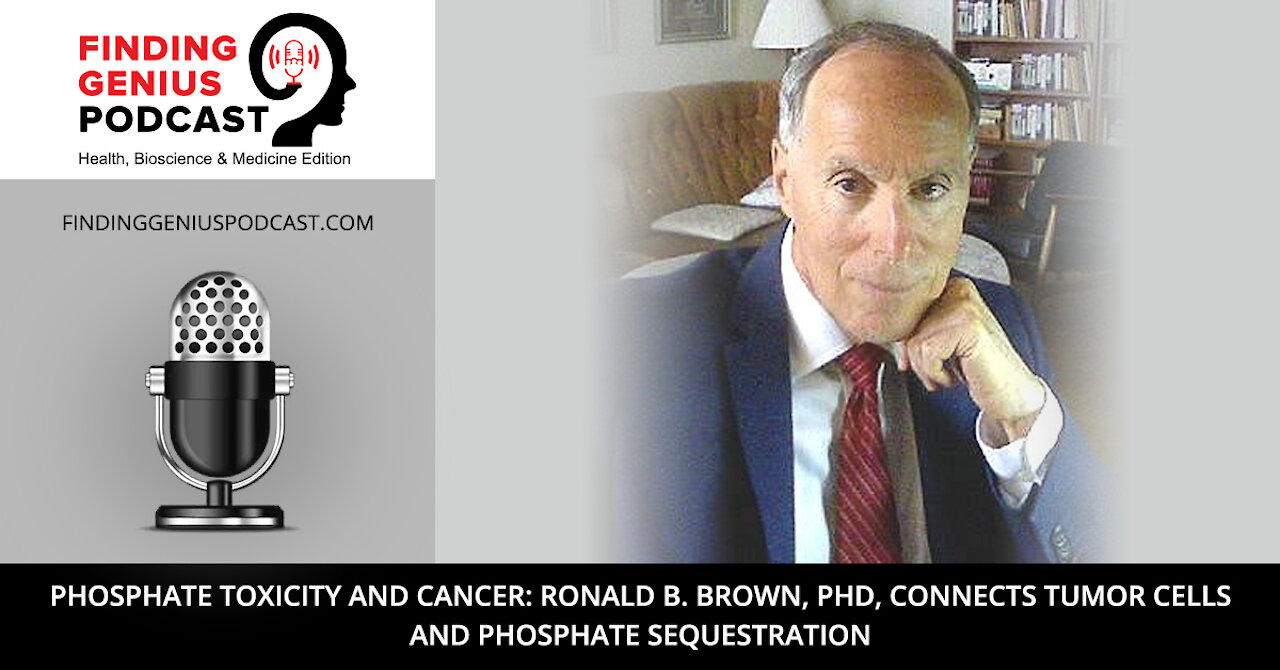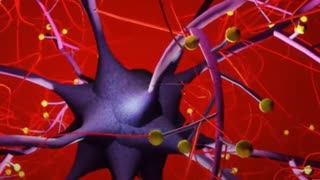Premium Only Content

Phosphate Toxicity and Cancer
“Tumors are kind of like deposits, where the body can store up excess amounts of phosphorus,” says Dr. Ronald Brown. In this continuation of the Finding Genius cancer disease series, he discusses his unconventional and exciting theory on what causes tumor cells to proliferate.
Listen and learn
Why, because phosphate promotes growth, its excess promotes tumorigenesis, much like fertilizer runoff leads to dangerous algal blooms in water,
Why this differs from conventional theories about tumorigenesis, and
How this translates into techniques for cancer prevention and cancer therapy treatment through methods like low phosphorus, healthy diets.
Ronald B. Brown’s PhD in industrial organizational psychology lends him a unique view of cancer research. In particular, he utilized grounded theory to note the significance of phosphate toxicity and cancer spread, and has continued this work with research partner Mohammed Razzaque. He explains that if we get too much phosphate, our kidneys can’t regulate it and it will start accumulating in our body. It’s acidic quality means that accumulation can cause what’s called phosphate toxicity, which in turn can affect every bodily organ.
He explains how this phosphate excess causes cancer cells by explaining the solid characteristics of tumor cells. He adds that tumors and phosphate form “a reciprocal relationship. The phosphorus stimulates the growth and the growth helps to sequester the phosphorus and keep it out of the circulation.” In other words, tumors are our bodies’ way of storing too much phosphorus. He ties this to possible cancer prevention and early detection programs that could help patients integrate low phosphorus diets and appropriate lifestyle changes that boost immune cells.
Listen in for more about phosphate’s effects on organs, calcium, bone density, and cellular overgrowth.
Episode also available on Apple Podcasts: apple.co/30PvU9C
-
 0:44
0:44
FGP
10 days ago🚨 How Antipsychotics Increase Psychosis Risk 🚨
371 -
 1:00
1:00
WXYZ
4 years agoCancer Landscape
94 -
 5:26
5:26
WMAR
4 years agoMedStar Health Cancer Network - Colorectal Cancer
203 -
 5:40
5:40
KTNV
4 years agoSkin Cancer Awareness Month
50 -
 11:09
11:09
Owl_Tarot
4 years ago $0.01 earnedCancer Reading
1.71K -
![Cancer Survivor's Day [GMG Originals]](https://1a-1791.com/video/s8/1/P/G/n/R/PGnRb.0kob-small-Cancer-Survivors-Day-GMG-Or.jpg) 0:45
0:45
Shared Quotes
4 years agoCancer Survivor's Day [GMG Originals]
23 -
 5:12
5:12
WMAR
4 years agoBlood Cancer Treatment Options
311 -
 0:29
0:29
KMGH
4 years agoColon Cancer is 3rd most diagnosed cancer
65 -
![All about cancer [GMG Originals]](https://1a-1791.com/video/s8/1/R/j/V/Q/RjVQb.0kob-small-All-about-cancer-GMG-Origin.jpg) 4:12
4:12
Shared Astrology
4 years agoAll about cancer [GMG Originals]
1.07K -
 1:10:14
1:10:14
The Heidi St. John Podcast
2 days agoWhat About the Department of Education? with Mike Farris
6.34K